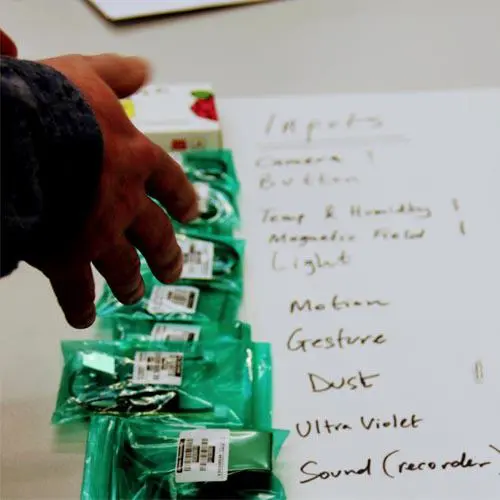Value My News and SenseMaker projects receive external funding
The University of Central Lancashire’s (UCLan) Media Innovation Studio is celebrating winning two projects from the Google Digital News Initiative (DNI) Innovation Fund to push the boundaries of journalism innovation.
Value My News (VMN) is a six-figure project that will deliver a suite of tools to enable hyperlocals to create and capture revenues in new ways.
SenseMaker, which has received funding worth €48,000, brings together UCLan’s Media Innovation Studio and Engineering Innovation Centre, publisher Reach and the Manchester Evening News, and a range supporting partners to ‘co-create’ web-connected sensor packs for journalism.
Google DNI is a European-wide fund that is geared towards supporting innovation journalism and the media.
VMN will deliver a suite of tools to enable hyperlocals to create and capture revenues in three new ways over two years: through the sharing economy by pooling resources, from new leads and sales, and by tracking where content has been used and not financially credited. Independent community and hyperlocal media form an integral part of the news ecosystem. Yet they struggle to find a sustainable revenue model.
Clare Cook, Principal Investigator and co-founder of the Media Innovation Studio, said: “The focus is at the hyperlocal level: where journalism is most valued but also most at risk. We know that content produced at a grassroots level is valuable further up the news food chain, yet content producers do not always get a fair share of the revenue generated from their work. We will transform the sector by capturing revenues otherwise leaking through the supply chain."
VMN will build sustainability by creating revenue streams and adding new revenue-informed KPIs. It will demonstrate a compelling new model with key learnings for other media systems elsewhere in Europe and deliver a white label product for market. The innovation lies in trialling an approach to pool content from UK hyperlocal publishers.
It is a collaboration between UCLan’s Media Innovation Studio and lead partner the University of Cardiff’s Centre for Community Journalism.
"We will transform the sector by capturing revenues otherwise leaking through the supply chain."
Clare said: “We are keen to tackle a problem that's been troubling community and hyperlocal news publishers for a very long time. We truly believe that Value My News can both transform and sustain this sector, by creating new revenue streams. I am motivated by pragmatic solutions that uncover sustainable revenues which can improve the lived experiences of niche media. This is a massive step to create new knowledge as well as real-world impact.”
With partners spanning engineering and journalism, and with supporting partners including the Greater Manchester Combined Authority, and journalism.co.uk, SenseMaker will design and develop dedicated journalism sensor kits that respond to, reveal, or add value to, local issues via a co-creation methodology. It will test the premise that by co-creating sensors and data collection tools, the prototypes will be highly relevant and suitable for journalists and their communities.
The outputs will include novel and highly relevant connected sensing kits; rich multimedia content generated from collected data; data visualisations and new editorial opportunities.
For example, the sensor prototypes could detect pollution, biometric data, thermal imagery, noise, infrared and audio information and the resulting datasets will prompt novel and compelling editorial responses; enabling citizens and journalists to work together in creating compelling content, or independently verifying official/third party data.

"We're excited about connecting people, data and stories."
It also offers the opportunity to create new revenue models.
By combining previously uncovered information and data with local knowledge and situations, it aims to help users/audiences interpret and make sense of the world they live in.
Lecturer John Mills, Media Innovation Studio Researcher and Project Lead, said: “We're excited about connecting people, data and stories. By including a range of industry and community groups in our process, we hope to create compelling and relevant editorial content via unique sensing devices. It's going to be a fascinating project.”
The Media Innovation Studio has been funded three times by Google DNI. It received funding in 2016 for NewsThings, which sought to create and build dedicated Internet of Things devices that conveyed news and information to newsrooms and the public. Its three prototypes - ConeThing, RadioThing and PrinterThing, have been demoed internationally, and are currently undergoing in-depth user trials to allow the team to better understand how journalism could take advantage of a new publication platform.
Both projects will begin later this year.

